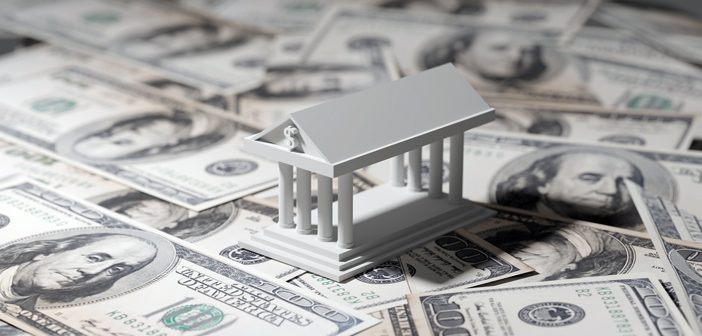When last we wrote about the Federal Reserve, the financial industry was all a buzz about what the Fed would do next. Here we are a few months later, and two things haven’t changed. First, there are people convinced the Fed will finally announce interest rate cuts at its September 17-18 meeting. Second, there are people who are convinced the Fed will not cut interest rates. Where does that leave you? Well, that depends on your view of the economy.
Team A is rooting for the Fed to drop rates; there’s good evidence this will happen. Jerome Powell, Chair of the Federal Reserve, said in August at their symposium in Jackson Hole, Wyoming, “The time has come for policy to adjust. The direction of travel is clear, and timing and pace of rate cuts will depend on incoming data, the evolving outlook, and the balance of risks.” If rates are cut, borrowing money will be more affordable, stimulating companies to draw funds. Many are pointing to the rise in the unemployment rate to 4.3% as of July 2024, the highest since October 2021 per the U.S. Department of Labor, as a reason to lower rates, hoping this will give businesses a boost and start hiring again.
Lower interest rates might spark home buyers to make an offer on a home. And those who have a loan with a low interest rate to make a move. Yes, these buyers will pay more in interest, but a decrease in rates may be enough to get them to move, putting more inventory on the market, which could lower home prices.
A drop in interest rates may also spur consumers to make big purchases, such as a new vehicle.
Before you say rates are too high and must drop, let’s take a quick trip back in time. In October 1981, home buyers faced mortgage rates of 18.63%.* The start of COVID-19 brought about an unprecedented drop in rates, with many home buyers securing a rate of under 3.00%. Yes, rates have more than doubled since COVID hit, but compared to 1981, current mortgage rates are a bargain. However, we’ve also seen mortgage rates climb significantly since the start of COVID, along with inflation. Hoping rates drop is understandable.
Team B is rooting for the Fed to keep rates as they are, arguing that inflation, while better than it’s been, 2.9% as of July 2024, isn’t low enough, not hitting the magical 2%, so we must stay the course.** However, according to Powell, “While the task is not complete, we have made a good deal of progress toward that outcome. … My confidence has grown that inflation is on a sustainable path back to 2%.” If the Fed doesn’t lower rates, the interest you earn on CDs and savings accounts is less likely to drop.
If you’ve been on the sideline waiting for rates to drop to make a big purchase, the non-drop philosophy can be frustrating. But, as we just said, if you have a high interest rate on savings, this could be considered good news.
So, what’s your next move? What would you tell Jerome Powell to do if you could whisper in his ear?
Here are a few things you can do whether you’re on team “lower rates” or team “keep them the same.”
- Eliminate debt: Even if interest rates drop, they won’t be cut in half. Paying down your debt as quickly as possible can save you significant money in interest payments. Plus, it frees up that cash to start or add to an emergency fund.
- Increase savings: Think before you spend. Cut back on little expenses that add up monthly. Do you need multiple streaming services? Can you enjoy coffee at home versus the local coffee house? If you’re taking a vacation, shop around for flights and accommodations. Traveling off-season is an easy way to save. Make money on your savings. There are still savings accounts paying a nice interest. Adding to them now can help increase your nest egg. Our Online Savings account is paying 4.00% APY† with Direct Deposit (3.00% APY without). There are no minimum deposit or maintenance fees.
- Lock in high Certificate yields: There are several options for securing today’s higher interest rates for short- and long-term growth. Here are three to consider before the Fed takes action:
- Variable Rate Certificate: This 36-month Certificate is currently earning 5.75% APY††. Its yield moves with the financial markets, so if interest rates rise, so do your earnings. If rates drop, you’ll still probably earn more than a traditional fixed-rate CD.
- No Penalty Certificate: Earn 4.50% APY‡ for nine months. And you can take out funds once per calendar month after the first 30 days of funding your Certificate without penalty.
- Limited Time Certificates: Here are two options to secure short-term and slightly shorter-term gains. Our Limited Time 3-Month and 6-Month Certificates are offering 4.25% APY§ whichever term you choose.
Final thoughts.
Whether the Fed cuts interest rates or not, a few things are certain, not everyone will be happy with the move; the media will second-guess whatever the Fed does; and we’ll all be speculating what will happen at the Fed’s November and December meetings. Rather than wait and wonder, consider taking action now to secure your financial future. Create a budget. Start an emergency fund. Find ways to lower credit card debt. Secure higher yields. A proactive rather than reactive approach to finances can be the path to financial wellness you’re looking for, no matter what the Fed does.
*Giovanetti, Erika, “Historical Mortgage Rates: See Averages and Trends by Decade,” U.S.News.com. 26 June 2024. Accessed 21 August 2024.
**Foster, Sarah, “Inflation hit a three-year lob but some items are still pricey – here’s what rising most,” Bankrate.com. 20 August 2024. Accessed 21 August 2024.
†APY = Annual Percentage Yield. APY is the annualized rate based on a compounding period of one year. When the deposited money earns dividends and the accumulated dividends starts earning dividends as well, we are talking about compounding. Fees could reduce the earnings on an account. All yields except Certificate yields are subject to change retroactively to the beginning of the month. Rate bonus is for a minimum of $1,000 monthly ACH Direct Deposit into a Farmers Insurance Federal Credit Union Checking Account. Rates are subject to change at any time. No branch or call center access with this account. The national average for this type of account is 0.45% APY, based on rates published in the FDIC Monthly National Rates and Rate Caps accurate as of 7/15/2024.
††APY = Annual Percentage Yield. APY is the annualized rate based on a compounding period of one year. When the deposited money earns dividends and the accumulated dividends starts earning dividends as well, we are talking about compounding. Fees could reduce the earnings on an account. All yields except Certificate yields are subject to change retroactively to the beginning of the month.
Variable Rate Certificate 36-Month Term (Variable Rate Certificate) No additional deposits accepted (other than dividends) during certificate term renewals. Fund your account with a minimum deposit of $1,000. Annual Percentage Yield (APY) rate is based on current Federal Funds Rate Upper Limit of 5.50% APY plus a 0.25% spread. Yield rate is 5.75%% APY. Base rate is 5.60% APR. Rates are subject to change on the first day of each calendar month following account opening. No bonus dividends (no jumbo bonus and no DDEP bonus). At maturity, account renews into the same product: Variable Rate Certificate 36-Month Term renews into a Variable Rate Certificate 36-Month Term; Variable Rate IRA 36-Month Term renews into a Variable Rate IRA 36-Month Term. Early withdrawal penalties may be imposed and fees could reduce earnings and/or principal. APY interest rate will follow the Federal Funds Rate Upper Limit. Rates are subject to change on the first day of each calendar month following account opening. Rates are subject to change without notice. Rate may not be combined with any other rate increase/bonus. Regular share certificate requirement on a 365 day basis. IRAs qualify for Variable Rate Certificate. Minimum balance to obtain the available rates for Variable Rate Certificate 36-Month Term advertised annual percentage yield is $1,000. Fund your account with a minimum deposit of $1,000. Early withdrawal penalties may be imposed and fees could reduce earnings and/or principal. Refer to our TISA Disclosure for terms and conditions. Federal regulations require dividends be paid from available earnings; dividends are contingent upon this regulation.
‡NO PENALTY: Limited Time Offer No Penalty 9-Month Certificate Account / Yields are subject to change without notice. This is a promotional yield of 4.50% APY. Bonus Dividend may not be combined with any other dividend increase/bonus. Annual Percentage Yield (APY) is calculated on a 4.41% base rate, $1,000.00 minimum balance, regular share certificate requirement on a 365 day basis. IRA share certificates do not qualify for this promotion. Deposit must be new funds to the Credit Union and may not be transferred or withdrawn and deposited back into the Credit Union from any existing Credit Union account. No additional deposits accepted (other than dividends) during certificate term. Normal substantial penalty for early withdrawal of certificate funds will be waived as follows: 1) No withdrawals within the first 30 days of setting up the certificate 2) One withdrawal allowed per calendar month after the initial 30 days no withdrawal. Fees and other conditions may reduce earnings. The 9-Month promotional No Penalty Certificate will automatically roll over to a 9-Month Certificate at maturity. Federal regulations require dividends be paid from available earnings; dividends are contingent upon this regulation. Refer to our TISA Disclosure for terms and conditions. *APY = Annual Percentage Yield. Rates and terms are subject to change at any time. Fees could reduce the earnings on an account. No Additional deposits are allowed. No withdrawals prior to maturity date subject to terms; penalties will be waived after the first 30 days.
§APR = Annual Percentage Rate. APR is the annual rate of interest that is paid on an investment, without taking into account the compounding interest within that year. Rates are subject to change at any time. Not available for IRA Certificates.





